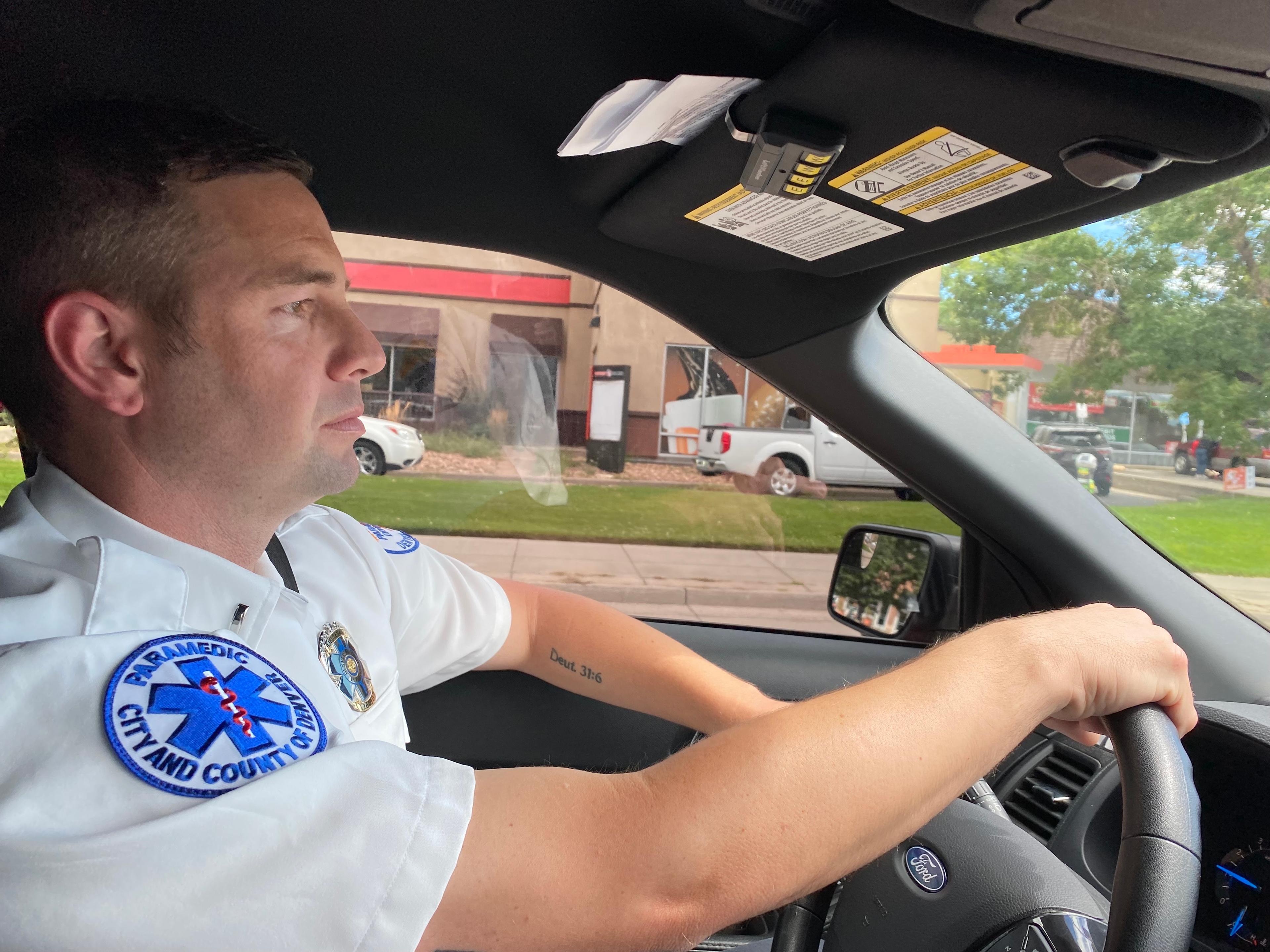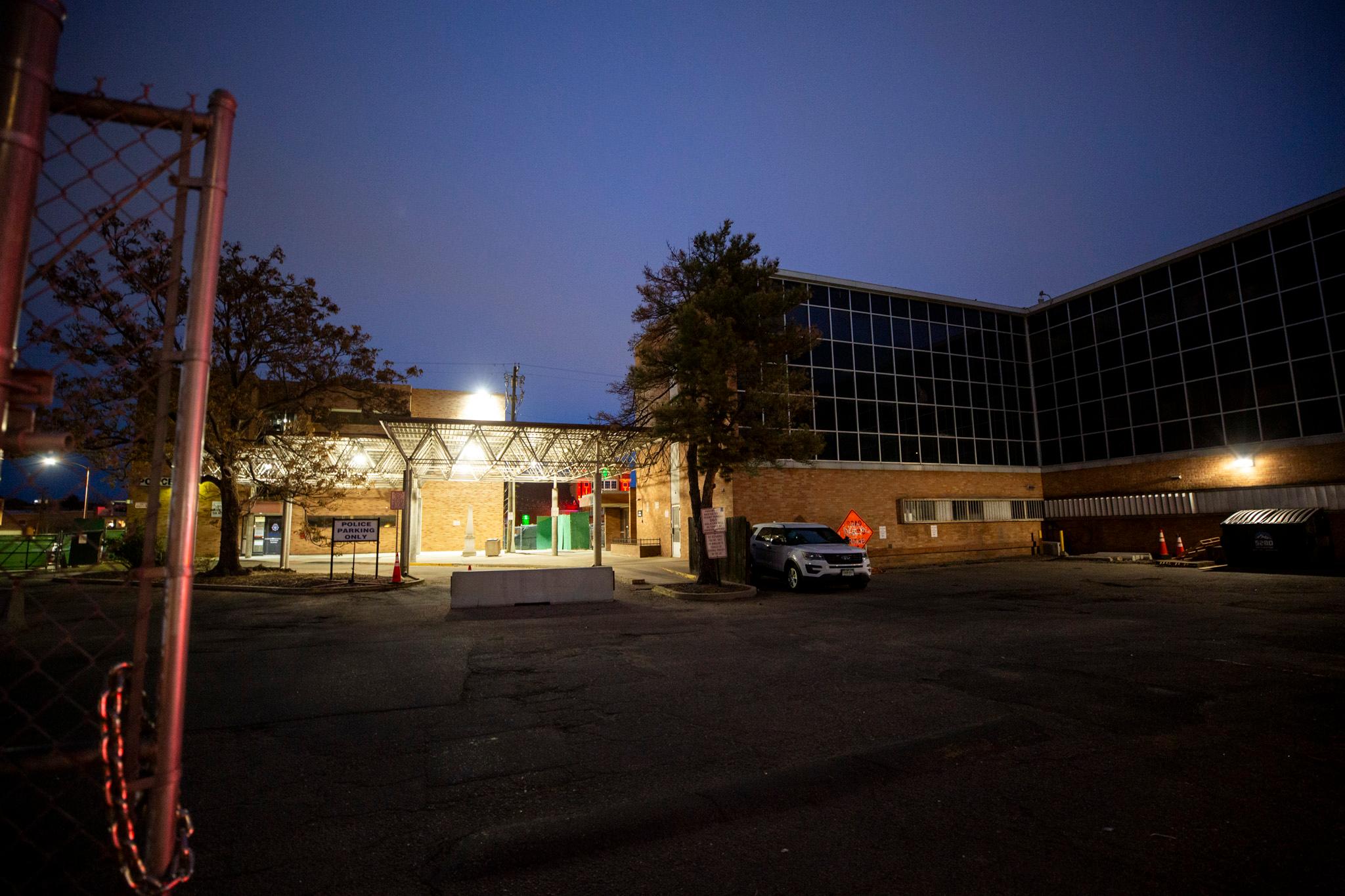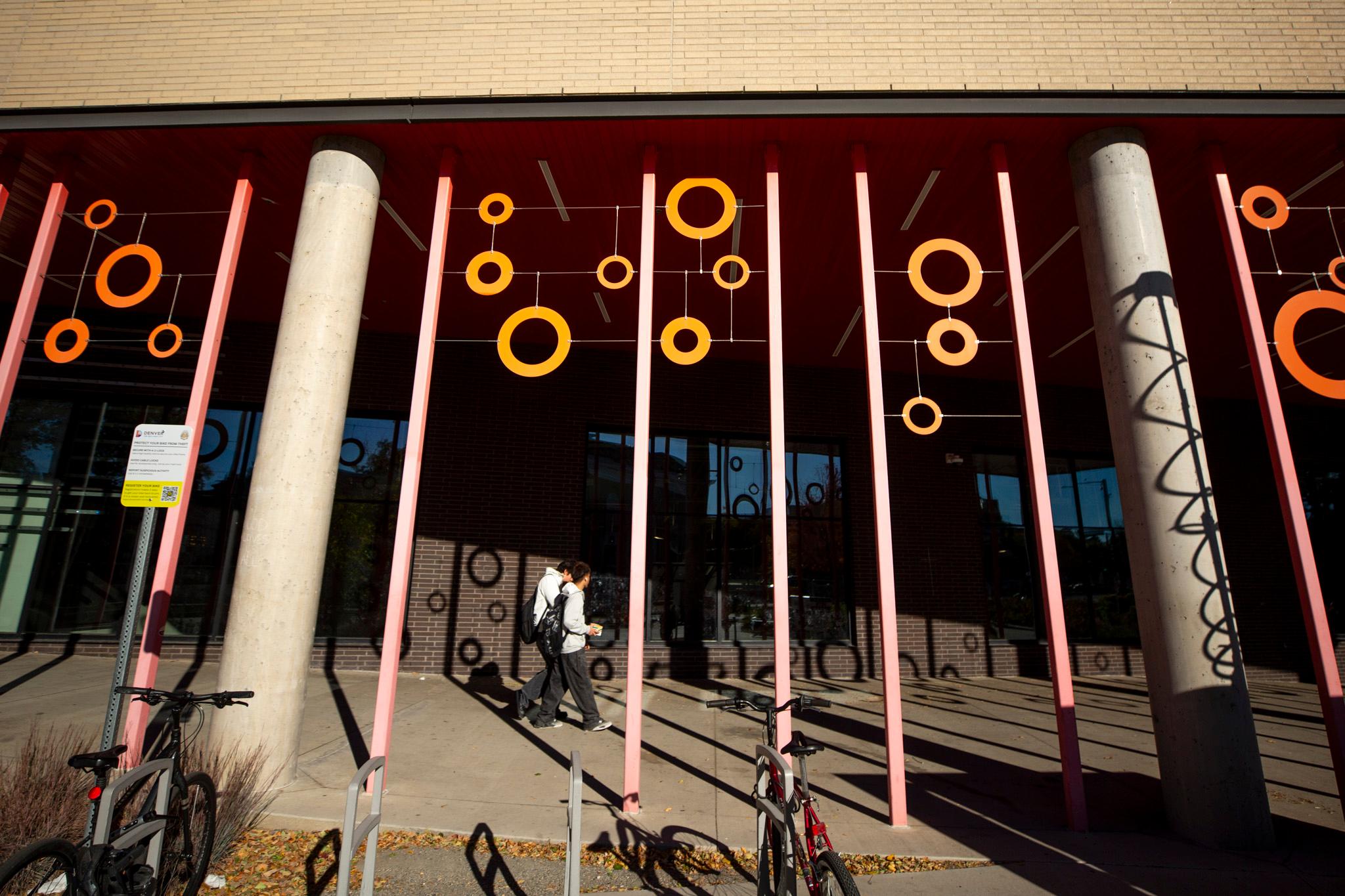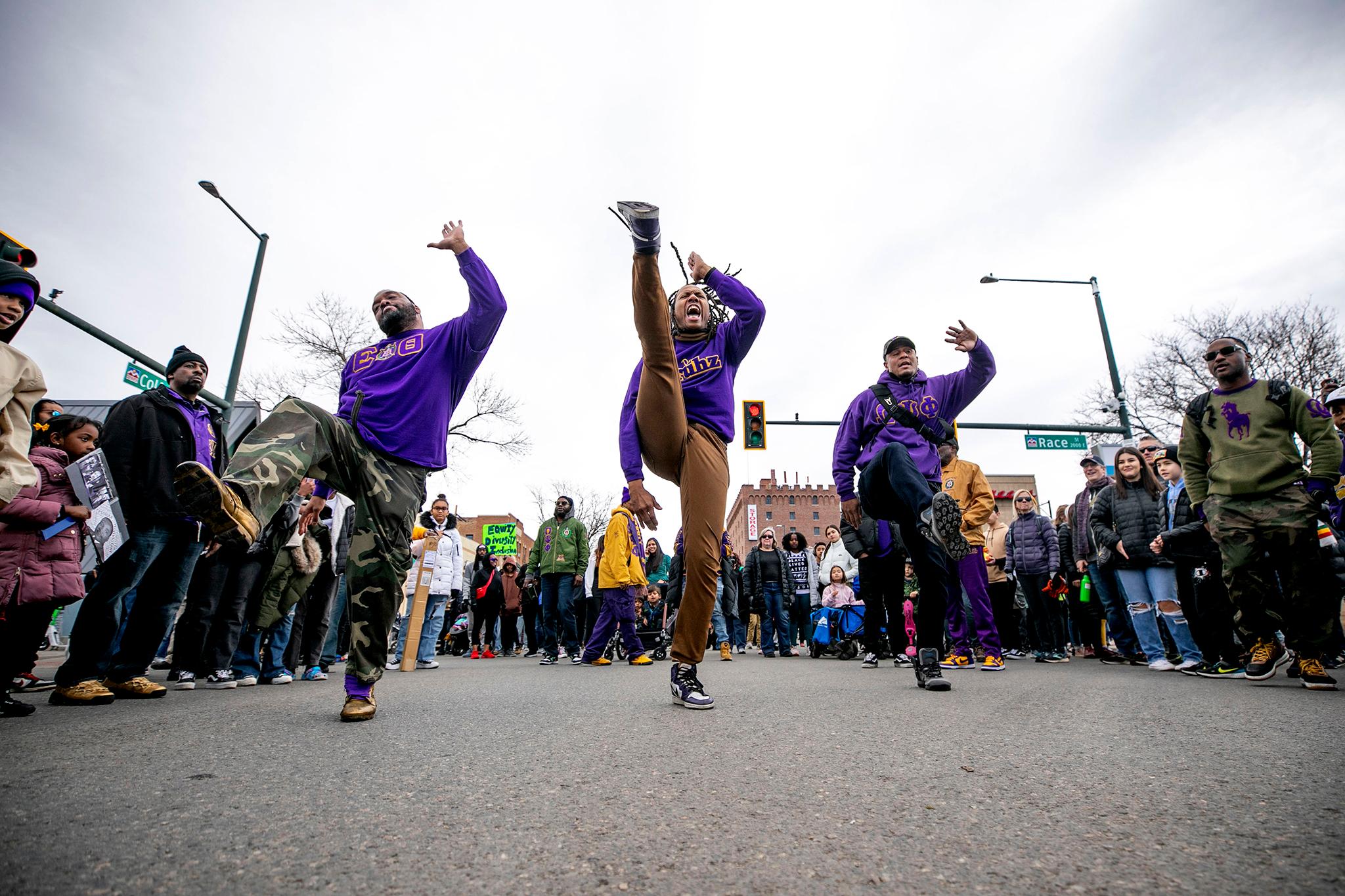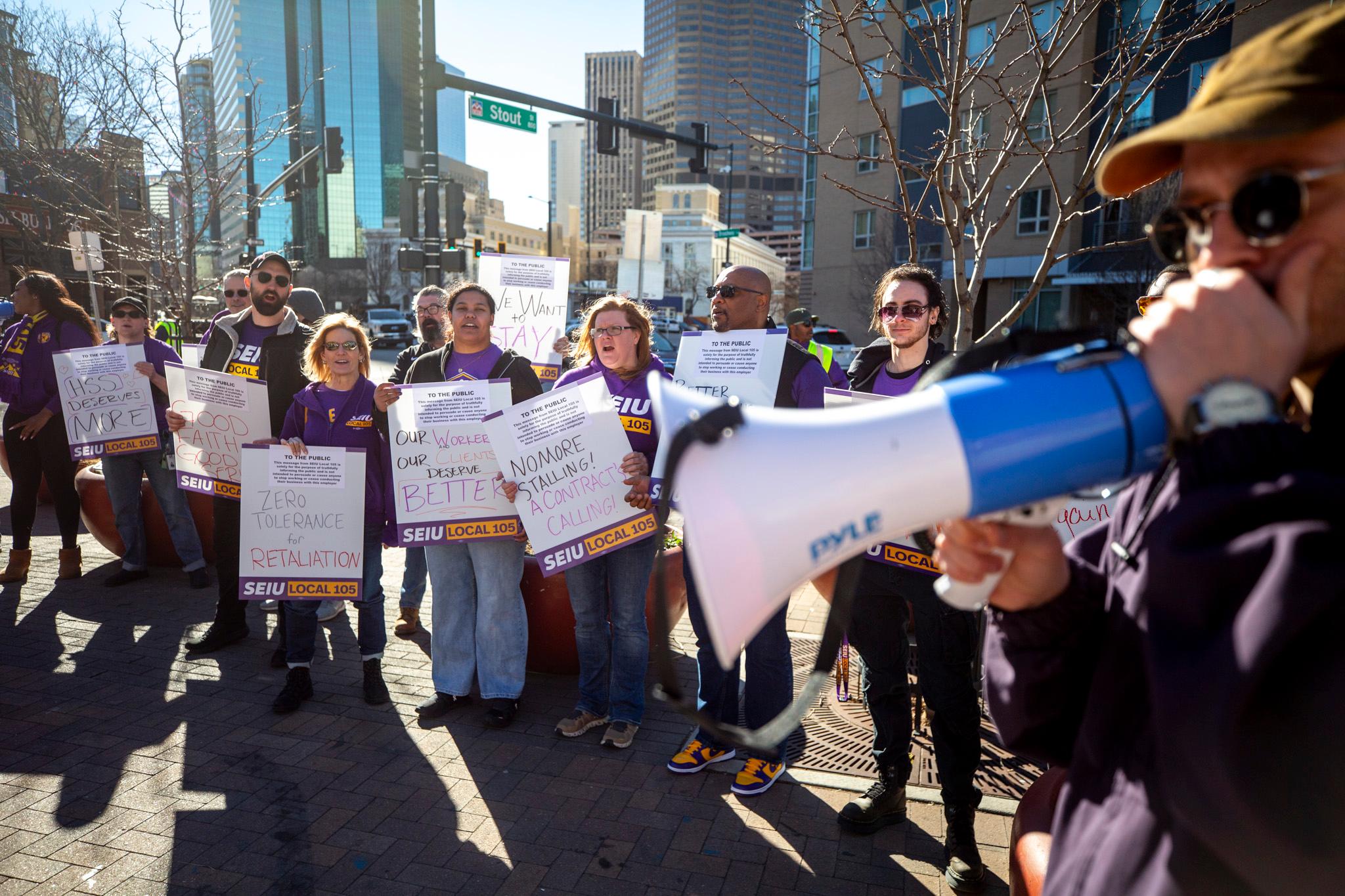On a sunny fall day, the computer screen in Eric Dailey’s emergency vehicle pinged with the latest dispatch call — a medical emergency at a light rail station.
“It's a little bit of everything,” said Dailey, a lieutenant with the Denver Health Paramedic Division, as he looked over the screen.
There were perhaps 20 calls on the board: folks with seizures, breathing trouble, psychiatric issues, at locations from the airport to batting practice at Coors Field.
“It runs the gamut,” Dailey said. “Throughout the day we could…arrive at close to 300 calls in a day and transport somewhere around 200 [people] in a day.”
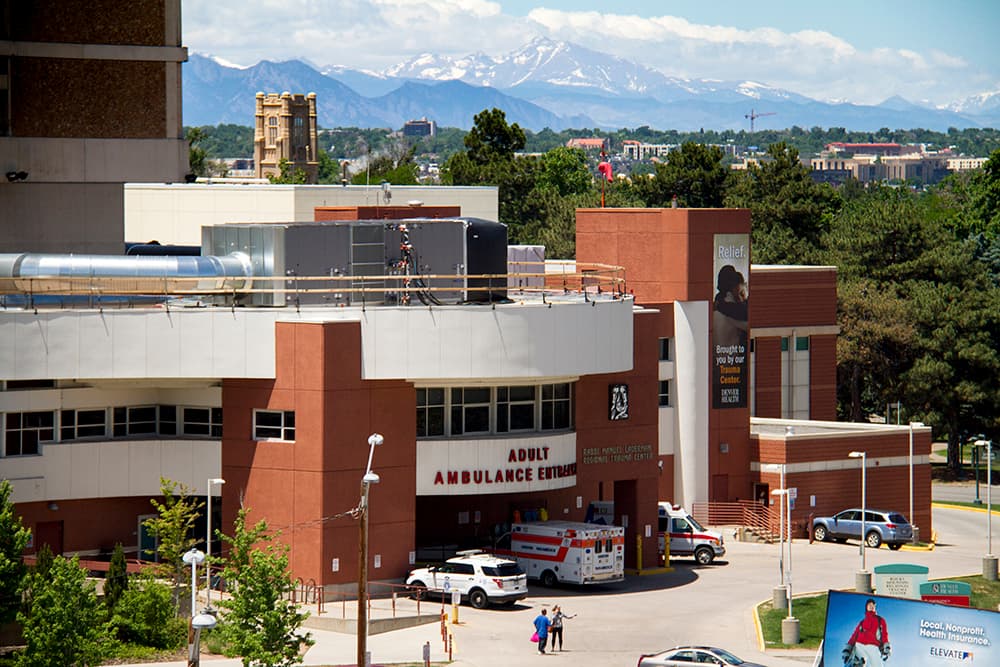
If you’re in Denver and a siren is blaring, there’s a decent chance it’s Denver Health paramedics taking a patient to its downtown hospital.
The institution, which is the state’s primary safety net hospital, employs more than 8,200 people, treating about 1.3 million patient visits each year.
It helps populations who struggle to get care elsewhere, including the uninsured, pregnant teens, and people suffering from addiction, violence and homelessness.
But all that care comes at a cost.
Denver Health has a yawning budget hole, losing millions of dollars per year. The hospital has been struggling financially, in large part, because it cares for everyone who comes through its doors, even if they can’t pay. And its revenues haven’t kept up.
Now, the future of the hospital’s finances is in the hands of Denver voters. Backers of Denver Health launched a campaign to ask voters, in Ballot Measure 2Q, to increase the city’s sales taxes by 3.4 cents on a $10 purchase. That’s expected to raise $70 million yearly for the hospital.
“I think Denver Health is essential to both the business community and the health of the city of Denver,” said CEO Donna Lynne as she gave her elevator pitch in a conference room of its administration building.
She expects the hospital to lose $11 million this year, on a total budget of about $1.3 billion.

The challenges are driven by a storm of financial challenges. Uncompensated care costs are projected to total $155 million this year. Medicaid and Medicare reimbursements don’t cover expenses. Healthcare costs are rising sharply, creating an obstacle to getting health care for about a fifth of all Coloradans, more than a million people, according to the Colorado Health Institute.
Denver Health gets revenue from a variety of sources, including insurance, patient payments and support from federal, state and local governments. But the City of Denver’s contribution to Denver Health has stayed flat, at $30 million annually, for years, which Lynne says isn’t enough to keep pace with rising costs.
“We need the citizens of Denver to recognize the strains that are on Denver Health and the fact that we need a modest increment in additional funding,” Lynne said.
The hospital’s budget is slightly smaller than the city’s entire general fund and slightly more than that of the Denver Public Schools. But Lynne said many don’t appreciate or understand all Denver Health does, like taking care of people in jails, in 10 community health centers and at 19 school-based health centers.
On the other hand, critics of the proposal have contended that the city is becoming overly reliant on sales taxes, and that the hospital also is being affected by larger trends like immigration.
Providing care, including for people without health insurance
One of those clinics, serving a broad spectrum of patients, is at Manual High School, located in Denver’s historically Black Five Points neighborhood.
“Our lobby is very much decorated with all of our wins, championships,” said Brianna Samples, a proud senior at Manual, where she is a manager for the football team. For years, she’s gotten care at school-based clinics that partner with Denver Health. She’s gotten check ups, vaccine shots and good health guidance.

The 19 health centers, located on Denver Public Schools campuses, are a network of medical, mental health, dental and behavioral health care. All DPS students and their siblings, including children enrolled in DPS-affiliated Early Childhood Education programs, can get care at no charge to their families, according to Denver Health.
Samples can’t vote yet, but if she could, Samples says she’d vote yes on the funding initiative.
“It is very good for my health, but also others' health, especially because some kids don't take care of themselves,” Samples said. “And then some kids don't have parents that help them take care of themselves.”
Another patient, Jessica Zofnass Barclay, also applauded the care she’s gotten through Denver Health. Three years ago, Barclay received a lifesaving craniotomy at the hospital’s emergency department. “Regular day at work, keeled over, shattered my head on the concrete floor, fractured my skull,” she said.
Denver Health paramedics rushed her to the ED, where a surgical team saved her life. She spent 10 days there, and, after intensive rehab, made a full recovery.
The cost? Three hundred thousand dollars. Her insurance covered a lot of it, she said, compensating Denver Health for the care.
“This institution saved my life,” said Barclay, a mom of two, who runs an investment banking firm focused on engineering and environmental consulting.
Now she’s urging her neighbors and other Denverites to help the hospital cover costs for those who can’t pay themselves.
“What's the alternative? Denver Health has to help the people who come here. We have to do this,” Barclay said.
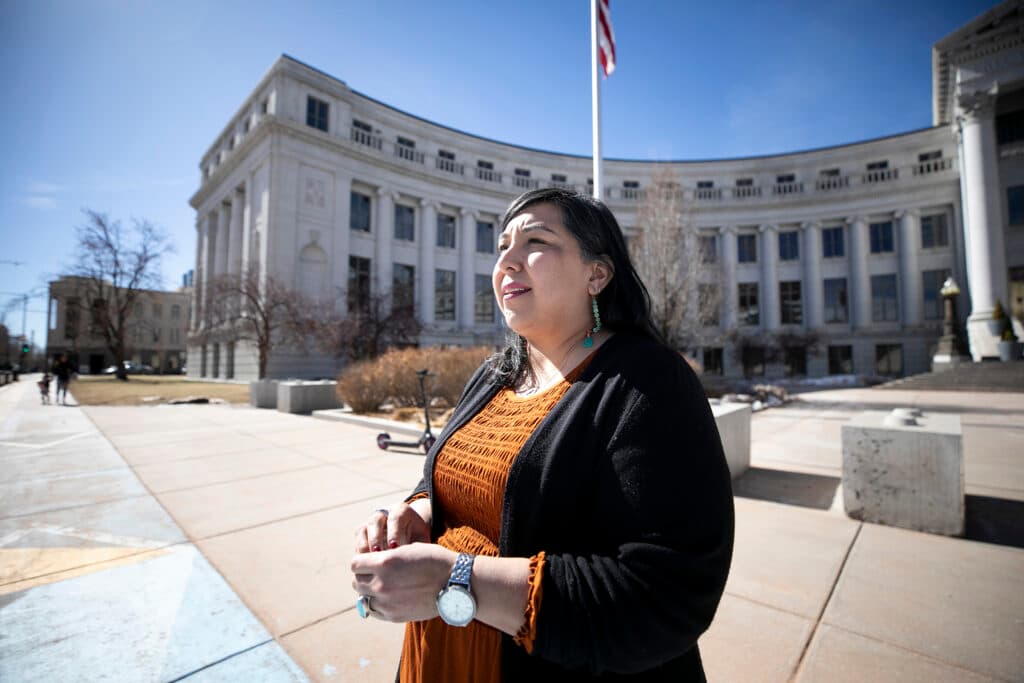
City councilwoman Jamie Torres, speaking at the proponents’ campaign launch event, warned the stakes are high, since it provides essential care to the underserved and uninsured.
“It is a pillar in this community,” Torres said. “This is not an institution that we want to fail.”
Rising costs and constant demands
Costs have exploded since the late ‘90s, Lynne said. One driver is simply rapid population growth — the hospital now sees two-and-a-half times more patients than it did then. The economy has changed as well, Lynne said, “where you have people working in low-wage jobs or you even have the gig economy where they're not offered health insurance.”
More recently Medicaid dropped people from coverage in the last year due to the end of the pandemic public health emergency.
“We've seen fewer people with Medicaid and more people who are uninsured. What happens is because Denver Health takes them regardless of their ability to pay, they still come here and they need the care,” Lynne said.
Underlying it all is the fact healthcare is expensive, she added, with the costs of things like drugs and hiring staff going up at a pace that’s greater than the general rate of inflation. “We have a lot of healthcare workers that left after Covid and have had, just like other systems, to pay a premium to retain them to work in very difficult situations,” Lynne said.
A vote for the measure, she told supporters, would shore up the hospital’s financial future and the health of the city’s people. If not, she warned, there could be cuts to a wide range of services.
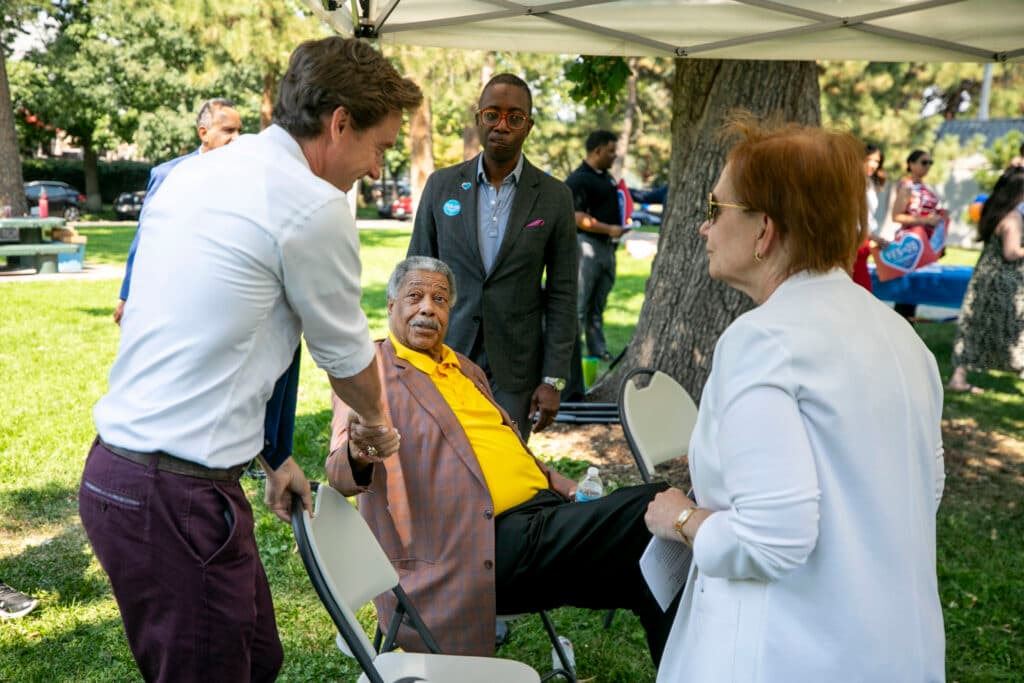
A list of Colorado’s Democratic headliners has endorsed the funding measure, including both its U.S. senators, the congresswoman representing the district where the hospital is located, Denver’s current mayor and four predecessors, more than a dozen state lawmakers and most of the city council. The council voted 12-1 to put the proposal on the ballot.
Supporters of the measure had raised close to $1.9 million for the political campaign as of Oct. 21, according to the Denver Campaign Finance Dashboard.
Public funding for Denver Health from the city: frozen for years
America’s Essential Hospitals, an industry trade group representing more than 300 safety net institutions, examined survey data from around 40 large public anchor hospitals.
“On average, those hospitals got about 11% of their budget from those city or county sources. So, fair amount,” said Bruce Siegel, its president and CEO. Denver’s share was much less, perhaps a quarter of that, he said.
“We were frankly surprised by it, by how little Denver was getting from the city and county relative to other members, big urban public safety nets in our membership, who look just like them,” Siegel added.
He said one similar hospital, Parkland Health in Dallas, got about 35 percent of its budget through the county it's located in, mostly through property taxes, about to more than $800 million annually.
The other thing that was almost unique to Denver, Siegel said, was that the amount of money from public sources had essentially been mostly stuck for decades.
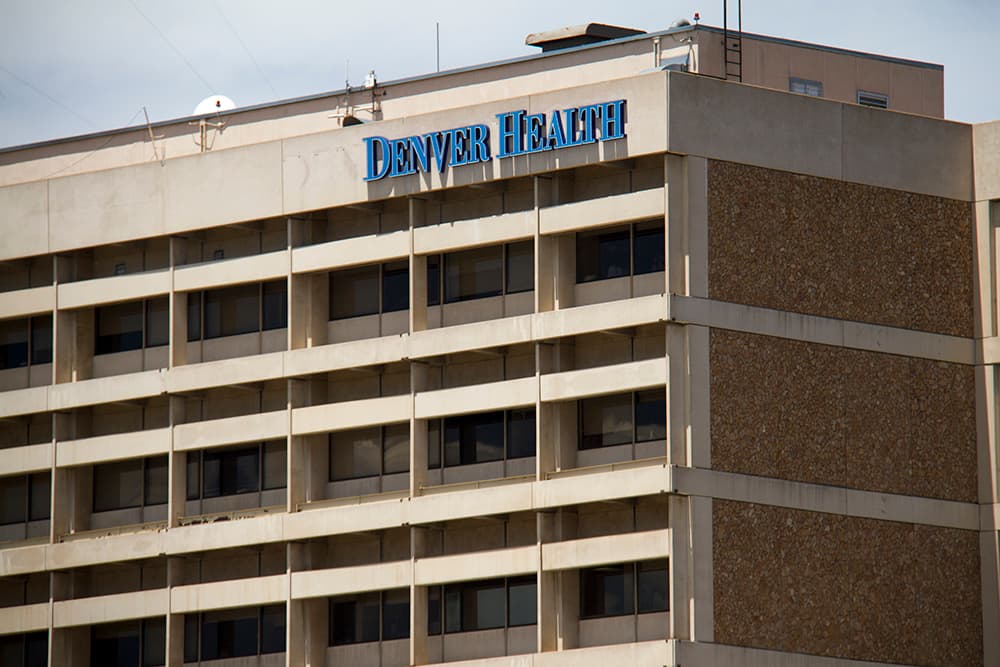
A Denver Health spokeswoman said that funding has fluctuated slightly since 1996, when it was established as an independent authority, but has remained effectively unchanged.
“Denver's (public funding) had essentially been frozen. So it really was an outlier and not what we expected to see,” Siegel said. In other cities, the amount of public funds generally goes up because of a larger population being cared for, people demanding more services, inflation, and more.
The state legislature and governor have given Denver Health about $11 million over the last two years. That helps pay at least for a bit of the uncompensated care, Lynne said, but falls well short of the amount needed to bridge the budget gap.
The case against
There appears to be no organized opposition to the proposal, but it’s faced skepticism and criticism in some corners.
In June, the city council considered placing the proposal on the ballot this fall. Just one member voted against it. Councilmember Kevin Flynn, who represents District 2 on the city’s south side, cautioned about Denver becoming too dependent on sales taxes to pay for city programs.
“I do feel like someone needs to be the canary in the coal mine, and I guess that's going to be me,” said Flynn. “I have a serious concern about burdening Denver taxpayers.”

Kim Monson, president of the Colorado Union of Taxpayers, has been a vocal opponent of the measure.
“What I'm concerned about is our taxpayers, which is everyone, and people are being taxed more and more, and it's making it more difficult for them to make ends meet,” said Kim Monson, president
Monson debated Lynne on Ballot Measure 2Q at a church in North Cherry Creek in mid-September.
“The other elephant in the room is the 40,000-plus illegal immigrants that have come here to the metro area to Denver, and they have not paid a dime into this system,” said Monson, who called it unsustainable. “We need to address that question before we start to ask the taxpayers to pay more taxes on almost everything that they buy every day.”
Lynne said caring for new migrants is a small fraction of the overall budget deficit, less than 10 percent of the increased uncompensated care Denver Health has seen over the last several years. “So we would do this measure without the migrants coming because of all those factors in healthcare with rising costs.”
Plus, Lynne said, untreated health problems of any population end up costing the entire community, including by the spread of communicable diseases.

Critics also ask: Why can’t other communities, whose residents also get care from Denver Health, help foot the bill for hospital services?
Lynne told CPR she and previous CEOs have tried to make that same case; one executive even wrote to leaders in other communities with an accounting of how much Denver Health had spent on care for residents of other cities.
The move proved unpersuasive. “We didn't get any answers back. Certainly we didn't get checks,” Lynne said.
Election Day is Nov. 5.
Editor’s note: Parts of this article were also published in Denverite’s voter guide. This article was updated Oct. 23, 2024 to correct the name of America's Essential Hospitals.

